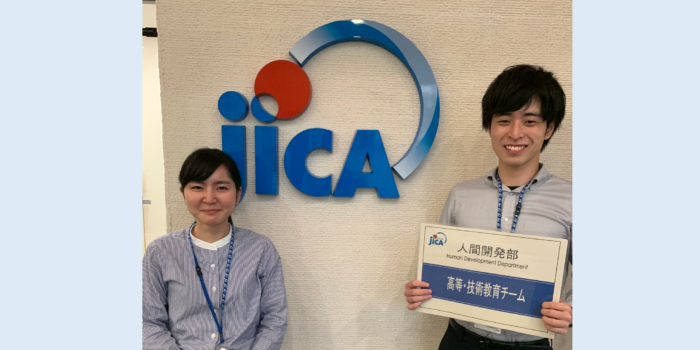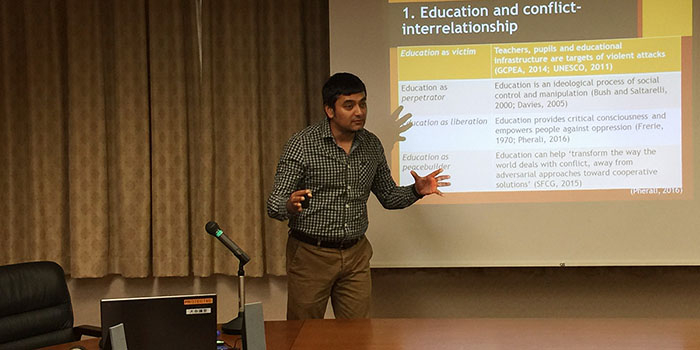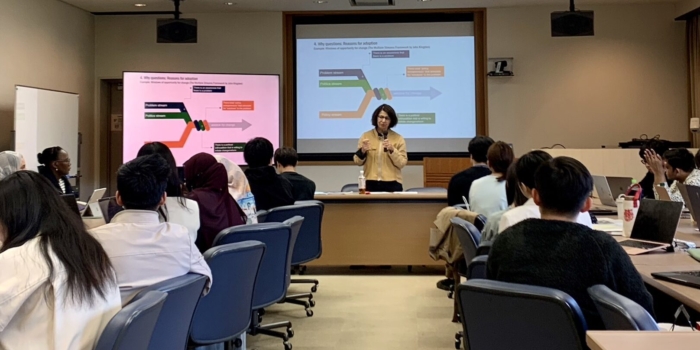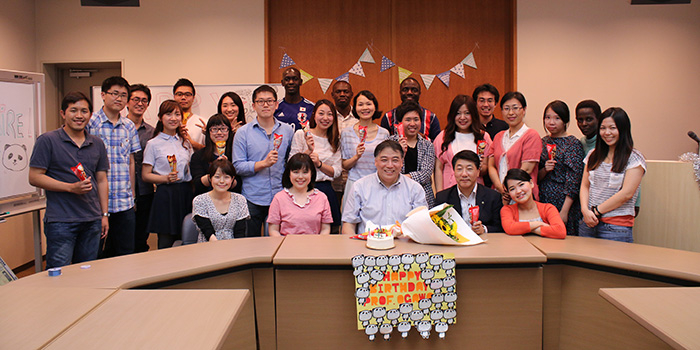From October 11 to November 12, 2021, I conducted my internship at the Japan International Cooperation Agency (JICA) headquarters. During my internship, I was assigned to the Higher and Technical Education Sector of the Human Development Department and engaged explicitly in three activities. Firstly, by studying higher education projects implemented by international organizations and examining the possibility of future collaboration between international organizations and JICA in higher education projects. Secondly, I conducted interviews with the people involved in JICA’s higher education projects and wrote articles to be posted on JICA’s website. Thirdly, I participated in the Higher Education Study Group organized by Dr. Umemiya, Deputy Director of the Higher and Technical Education Team.
The first activity was to conduct a desk review of higher education projects implemented in developing countries by international organizations, such as the World Bank and UNESCO. Through information on websites related to the projects and academic papers, I learned about the characteristics, challenges, historical evolution, and prospects of higher education projects implemented by each international organization. In addition, experts from the JICA higher education team provided us with information on local conditions and the strengths of JICA’s higher education program that are not revealed in the literature, allowing us to further consider the possibility of future collaboration between international organizations and JICA in the field of higher education.
The second activity was to conduct online interviews with faculty members and students of Jomo Kenyatta University of Agriculture and Technology (JKUAT), in Kenya, a priority recipient of JICA’s higher education project. Through the interviews, I was able to deepen my understanding of how the project has improved the research environment at JKUAT and what research projects are being conducted and have been successful. It was also an excellent opportunity to understand the local situation under the COVID-19 pandemic and the future challenges in promoting higher education projects. Furthermore, I was allowed to write an article for JICA’s website on the project based on the content of the above interview, which is available in this link.
As the third activity, I participated in a higher education study session led by Dr. Umemiya and exchanged opinions with JICA staff members. I was able to learn comprehensively about the field of higher education, from the historical evolution of higher education in Japan and abroad to current trends through this seminar. In addition, through exchanging opinions with the staff members, I understood various problems occurring in the field that research theories and data could not clarify.
What I learned through the above activities is that JICA serves as a bridge between counterparts and experts to ensure the smooth implementation of projects and that it is vital to building good human relations. Through the online interviews, I also had an excellent opportunity to learn the actual issues in developing countries under COVID-19 and what kind of support is needed to solve them. I was involved in various projects and worked with people from diverse backgrounds through this internship, which was an extraordinary experience for my future doctoral research and career.
I want to express my sincere gratitude to Dr. Umemiya, for accepting me as an intern at JICA Headquarters, and to the team and other team members for their tremendous support. I would also like to convey my appreciation to Professor Keiichi Ogawa for his continuous and kind support during my internship.
Authored by Ryuto Minami (Master Student)
Related






